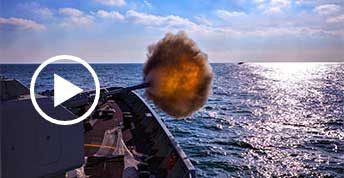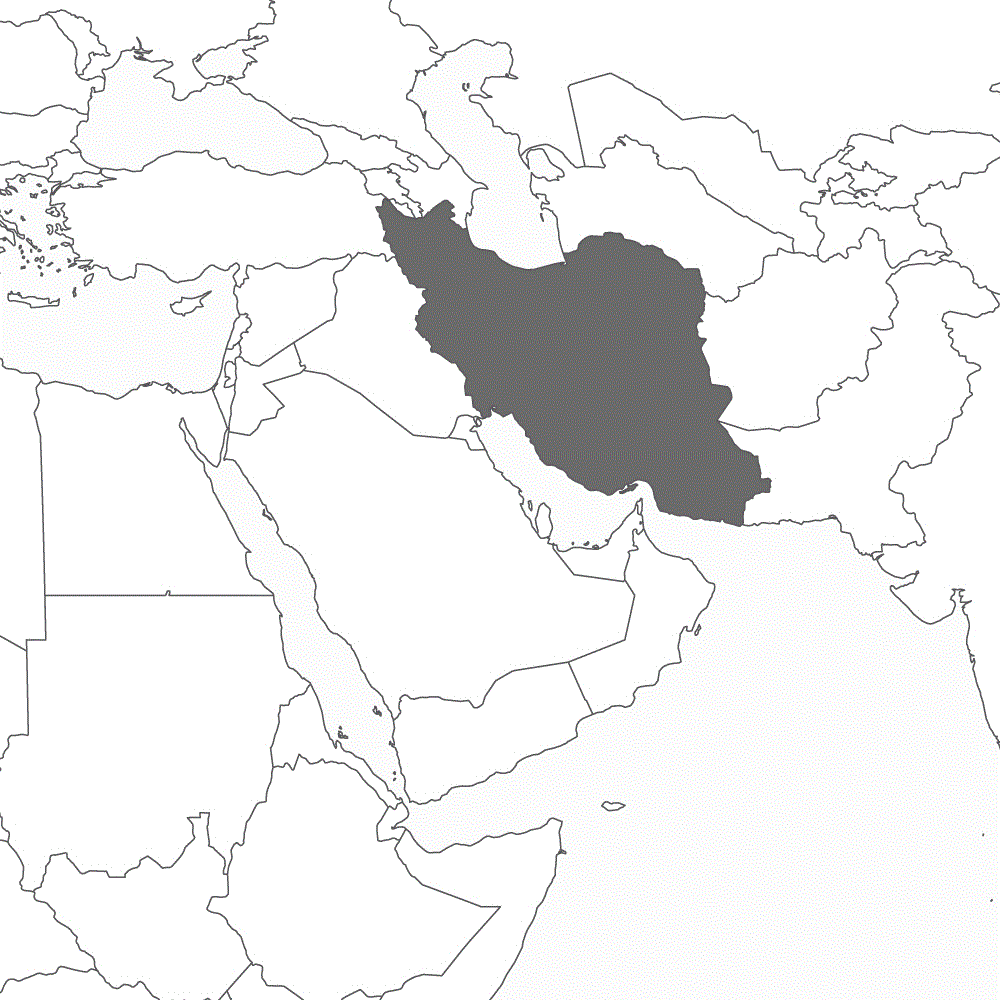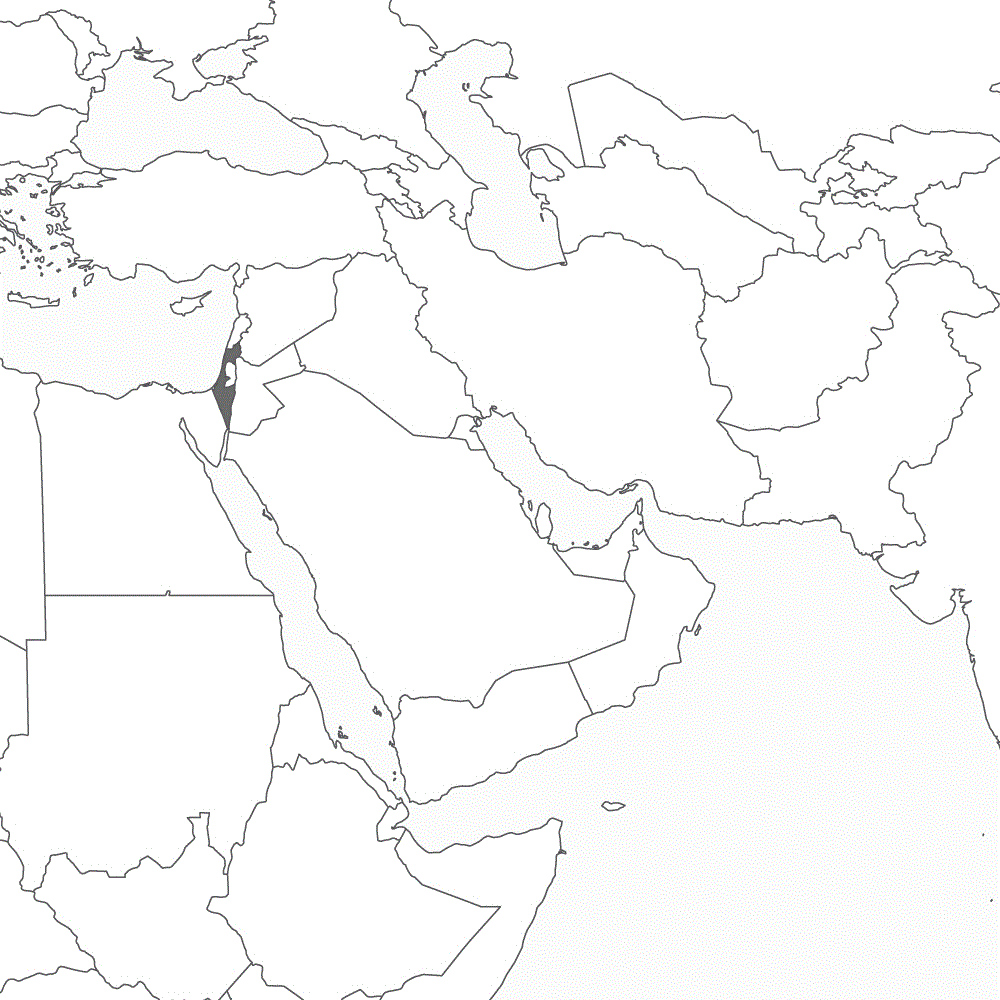Military states
Western countries and their allies are home to one seventh of the world’s population – but account for some two thirds of global military spending. As the arms industry gains weight in Germany, economists predict “guns without butter”.
BERLIN/WASHINGTON (own report) - At around two thirds, the share of global military spending by Western countries and their allies is twice that of the non-Western world. And it continues to grow. This is a finding of the latest study by the Stockholm-based research institute SIPRI, which was published yesterday (Monday). The researchers have found that global military spending rose last year to a record level of around 2,443 trillion US dollars. Of this volume, 37 per cent was spent by the United States and 24 per cent by the countries of Europe. And close allies like Japan must be included in the West’s share of arms expenditure. Germany is in seventh place in the SIPRI ranking of countries with the highest military expenditure worldwide. It is likely to rise to fifth place in 2024 due to its massive programme of arms spending on the Bundeswehr. The politically driven militarisation in the West is taking place at a time when the economic, and now political, influence of the transatlantic powers is on the wane – a trend that can possibly only be stopped by force. In Germany, the growing political importance of the arms industry and the burgeoning defence budget comes at the expense of tax revenues going to civil needs such as welfare, health and education. Read more
Escalation in the Middle East (II)
EU and several G7 states announce new Iran sanctions, with Germany pushing hard. Yet Israel’s attack on the Iranian consulate in Damascus without consequences. Double standards widely criticised.
BERLIN/TEHRAN/TEL AVIV (own report) - The EU and several G7 states are preparing new sanctions against Iran, partly in response to German pressure. This move follows Iran’s attack on Israel last weekend. The missile and drone bombardment was the first time Iran has directly targeted Israeli territory, although the two states have been engaged in violent clashes for many years. Since 2013, and increasingly since 2017, Israel has been hitting Iranian positions in Syria. Since 7 October 2023 the Israelis have focused on targeted assassinations of Iranian commanders, killing almost a dozen by the end of March alone. The airstrike on an Iranian consulate building in Damascus on 1 April killed seven Iranian commanders, some of them high-ranking. It marks “an unprecedented escalation” by Tel Aviv, notes the London-based think-tank Chatham House. It could yet prove to be “the spark that ignites the Middle East”. In response, the West has taken no action against Israel for, not least, violating the Vienna Convention on diplomatic sites. Iran’s retaliatory strikes – a choreographed show of strength communicated in advance – immediately triggered Western punishment. The double standards once again on display have given rise to some fierce criticism from the wider international community. Read more
“Keep the Ukrainians in the fight”
G7 foreign ministers are looking for options to avert a Ukrainian defeat. Experts believe that Russia can soon break through the frontline.
BERLIN/KIEV (own report) – Ahead of the meeting of G7 foreign ministers, beginning today on the island of Capri, there are frank warnings of a Ukrainian defeat on the battlefield. Alarm is being voiced both in Ukraine and in Western capitals. Kiev is “at great risk” of losing the war in the course of this year, declared a high-ranking British military officer at the weekend. Senior Ukrainian officers had previously warned that the Russian armed forces could soon be able to smash open sections of the front. A Russian advance into large parts of eastern and even central Ukraine is no longer ruled out. Experts criticise the way Western accounts have “talked up the situation in Ukraine from the outset”. The Ukrainian officers complain in particular that the impact of new Western weaponry is frequently overestimated – often based on a traditional bullishness and self-certainty. It is now clear, for example, that the Russian military has learnt how to eliminate Storm Shadow or SCALP cruise missiles, targeting them with a high hit rate. The G7 foreign ministers are now looking at options for preventing a collapse of the Ukrainian front. Foreign Minister Baerbock is proposing a worldwide “mapping of all Patriot systems” to secure faster supplies from third countries. Read more
The United Front against China
Berlin is sending more than 30 military aircraft and two warships on exercises in the Asia-Pacific region – beefing up deployment against China as well as against Russia.
BERLIN/TOKYO/CANBERRA (own report) – Germany’s armed forces are expanding their “Indo-Pacific deployment”. Germany will send almost three dozen military aircraft and two warships to the Asia-Pacific region for war exercises this year. Plans include participation in a large-scale US exercise near Hawaii, an air force exercise in Australia and more military training in Japan, as well as in US-led monitoring of the various sanctions placed on North Korea. Until now, the Germany has only deployed to the Asia-Pacific region units from one military wing at a time: the naval frigate “Bayern” in 2021/22, an air force squadron in 2022, and land army troops in 2023. As the head of the Luftwaffe, Lieutenant General Ingo Gerhartz, has confirmed, the expansion of Germany’s “Indo-Pacific deployment” is intended to demonstrate Berlin’s readiness to participate in military activities against China, in parallel to its military deployment against Russia. For its part, the US is working hard to consolidate its military alliances in East Asia. One aim is to take control of the First Island Chain, to which strategists attach particular importance in the push against the People’s Republic. US media are speaking of a “united front against China”. Read more
Germany on trial
Germany is on trial in The Hague charged with facilitating genocide. The recent surge in arms supplies to Israel might constitute complicity in the brutal Gaza Strip slaughter.
BERLIN/TEL AVIV/THE HAGUE (own report) – Germany must, for the first time, answer to the highest UN court. The charge is complicity in genocide. Accusing Germany of violating its obligations under the Genocide Convention, Nicaragua’s legal intervention led to public hearings before the International Court of Justice (ICJ) in The Hague at the beginning of the week. Managua accuses Berlin of supporting Israel both politically and militarily through arms supplies, despite the fact that Israel’s conduct of the war in the Gaza Strip is currently being investigated by the ICJ for its potentially genocidal character. The ICJ has already established evidence for genocide that is at least plausible. If this suspicion is confirmed the German government would be guilty of aiding and abetting genocide by authorising arms exports to Israel. A first formal ruling by the ICJ is expected in April. A number of Western countries have already seen courts, parliaments and corporations moving to stop arms deals with Israel in order not to risk an open breach of international law. The death toll among Palestinians in the Gaza Strip now exceeds 33,400, including large numbers now dying of malnutrition or water deprivation. Read more
Europe shifting further right
Parties on the extreme right are threatening to become the strongest force in nine EU countries in the upcoming European Parliament elections. Under von der Leyen’s presidency, close cooperation with some far-right parties is being discussed.
BERLIN/BRUSSELS (own report) - In next June’s European elections extreme right-wing parties threaten to become the strongest force in a third of member states and the second or third strongest force in another third. This finding comes from an analysis by the European Council on Foreign Relations (ECFR), a pan-European think tank. The latest polls predict a major shift in the make-up of the European Parliament. The far-right ECR parliamentary group and ID group will together be stronger than either the Social Democrats or the conservative EPP. The study indicates that the EPP parties and Social Democrats are about to face significant losses. Although they might mathematically still form a narrow majority in an alliance with the liberal Renew Europe group, such a parliamentary coalition would be unstable and unworkable in practice. This is the background to a debate in the EU on whether, under conservative EU Commission President Ursula von der Leyen, forces on the far right should be embraced as partners after the election. The focus is on cooperation with the ECR group, which includes the Sweden Democrats and Vox from Spain. In the European Parliament this group is led by the ultra-right Fratelli d’Italia under Italian Prime Minister Giorgia Meloni. Read more
“Revenue that no one is entitled to”
Scholz supports the confiscation of income on the interest of Russian state assets deposited in the EU. Experts consider this a clear violation of international law and warn that other nations, such as China, could withdraw their assets from the EU.
MOSCOW/BRUSSELS (Own report) – The German government is promoting EU plans to confiscate funds belonging to the Russian Central Bank. During yesterday’s EU summit in Brussels, German Chancellor Olaf Scholz spoke in favor of confiscating the interests accrued on that financial institution’s frozen assets to primarily invest in munition and weapons for Ukraine. The proposal had been officially presented on Wednesday by EU Commission President Ursula von der Leyen and EU Foreign Affairs Commissioner Josep Borrell. Scholz alleges that this interest income constitutes “revenue that no one is entitled to” and therefore may be tapped into. Depending on the development of interest rates, they could reach between €15 – €20 billion by 2027. Business and financial circles are emphatically warning that this measure violates state immunity and is therefore in violation of international law. If Russia’s interest income is confiscated, financial institutions and companies, for example, from China and other countries may begin to withdraw their assets out of the EU, because these would no longer be considered safe. And ultimately, Russian retaliatory measures are to be expected. Read more
Kindergarten in the bunker
Germany’s education minister Stark-Watzinger wants to involve schools in war preparations (“civil defence”) and urges close cooperation between universities and the Bundeswehr and arms industry.
BERLIN (own report) – Germany’s Federal Education Minister, Bettina Stark-Watzinger, is calling for schools to be involved in preparing German society for a possible major war. “Civil defence” was, she said at the weekend, “immensely important” and “belongs in schools”. The buzzword “civil defence” refers to measures designed to increase the civilian population’s chances of survival in the event of war. The minister demanded that schools develop a “relaxed relationship with the German army”. She said she could not understand why schools should have “reservations” about allowing Bundeswehr outreach officers into classrooms to tell children about defence issues. Leaders of the German Teachers’ Association and the Association of Towns and Municipalities have already called for school curricula to be “sharpened” to improve “defence readiness”. Even facilities for the youngest are to be included: kindergarten could be integrated in “civil defence” measures in a “child-friendly” way. Stark-Watzinger also wants to make greater use of universities for military research. And the Bavarian state government is now drafting a law designed to abolish the alleged “constraints on research” due to “civil clauses” (Zivilklauseln), which have long committed institutions to pursue only non-military research. Indeed, the new law will make it a “requirement” that universities cooperate with the Bundeswehr. Read more






